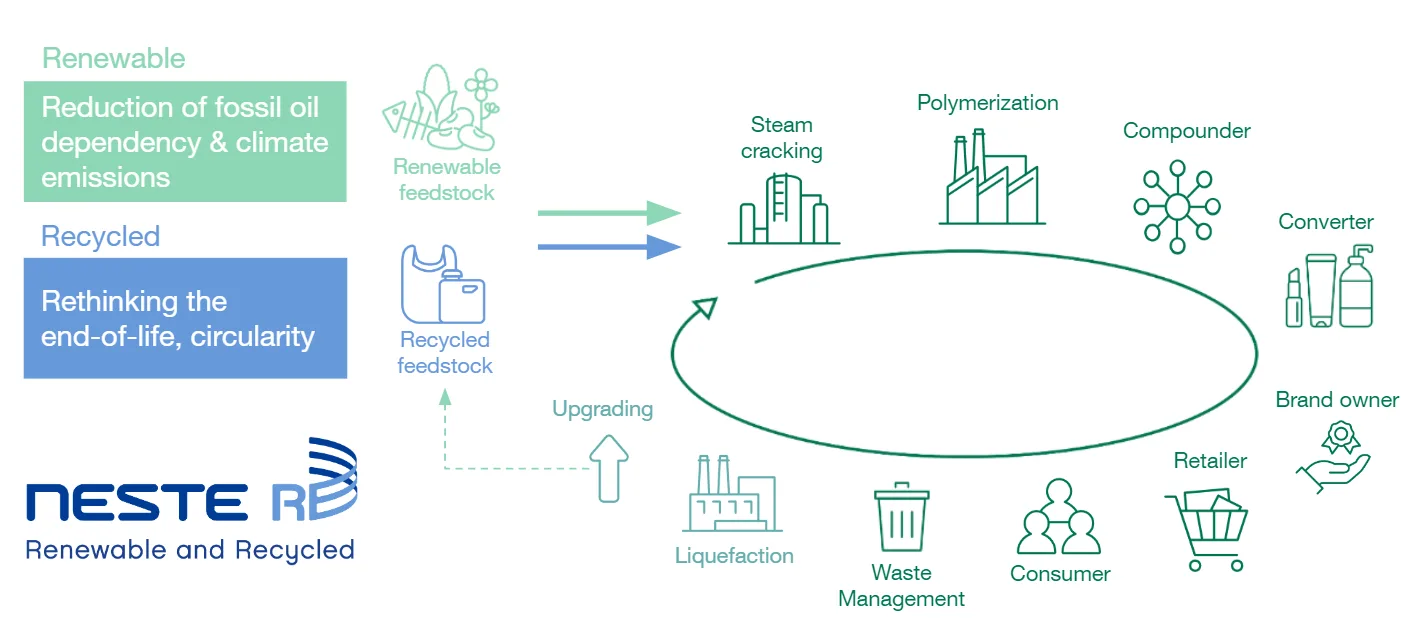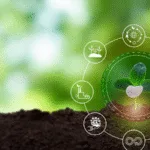Neste aims to process over 1 million tons of waste plastic annually
Neste creates solutions to combat climate change and accelerate a shift to a circular economy. The company refines waste, residues and innovative raw materials into renewable fuels and more sustainable feedstock for plastics and other materials.
Neste is committed to becoming a solution provider for chemical recycling of hard-to-recycle plastic waste. It is Neste’s aim to develop the capability to process over 1 million tons of plastic waste annually. The key target is to enable a reduction of the use of virgin fossil resources in polymers and chemicals production and to accelerate the shift to a circular economy for plastics, to also combat plastic waste pollution by adding value to waste.
The company’s approach to chemical recycling is the processing of liquefied waste plastic: waste plastic is liquefied e.g. via pyrolysis or hydrothermal liquefaction and afterwards upgraded and processed in Neste’s conventional refinery in Porvoo, Finland. The output is high-quality feedstock for the polymers and chemicals industry. A drop-in solution, the feedstock can be used to produce virgin-quality polymers, eligible for just the same applications as conventional, fossil-based polymers.
The company has successfully concluded several series of trial runs processing liquefied waste plastic in Finland. After kicking the series off with a first industrial scale trial run with liquefied waste plastic in 2020, Neste has conducted additional runs in the following years, processing a total of more than 6,000 tons of liquefied waste plastic into high-quality feedstock for polymers.
In early 2023, the company completed the grant agreement process with CINEA (Climate, Infrastructure and Environment Executive Agency of the European Commission) and the European Commission for 135 million euro funding to Neste’s chemical recycling project PULSE (“Pretreatment and Upgrading of Liquefied waste plastic to Scale up circular Economy”). Project PULSE is also an important part of the gradual transformation of its crude oil refinery in Porvoo, Finland into a leading renewable and circular solutions refining hub. In mid 2023, Neste took an investment decision over 111 million euros to start the construction of upgrading facilities at Porvoo refinery in the course of project PULSE, targeting the capacity to process 150,000 tons of liquefied waste plastic per year.
Neste accelerating circularity with value chain partners

In 2023, Neste cooperated with Uponor, Wastewise and Borealis. The partners successfully produced pipes made of cross-linked polyethylene (PEX) which was based on feedstock gained from chemically recycled post-industrial waste plastic from PEX pipe production, using the International Sustainability Carbon Certification (ISCC) PLUS certified mass-balancing approach, which makes it possible to track the amount and sustainability characteristics of circular and/or bio-based content in the value chain and attribute it based on verifiable bookkeeping.
Recently, Neste completed a life cycle assessment (LCA) on the environmental impacts of chemical recycling as incorporated into the plastics value chain. It concludes that greenhouse gas (GHG) emissions as well as virgin fossil resource use can be significantly reduced if chemical recycling is incorporated into plastics value chains to avoid incineration of plastic waste and replace fossil feedstock use with recycled feedstock in the production of polymers.












